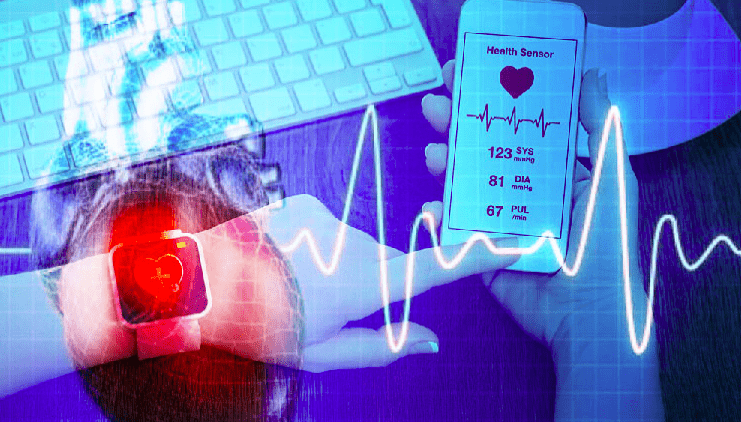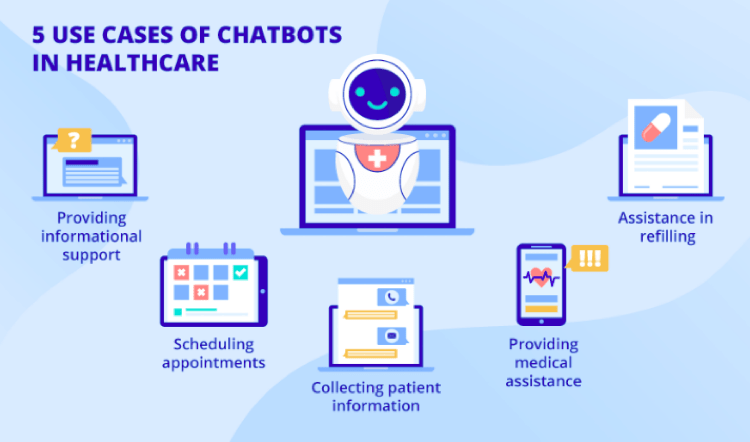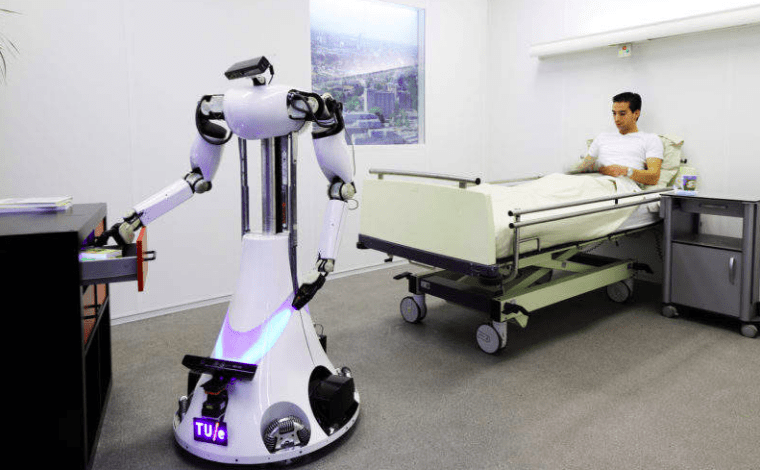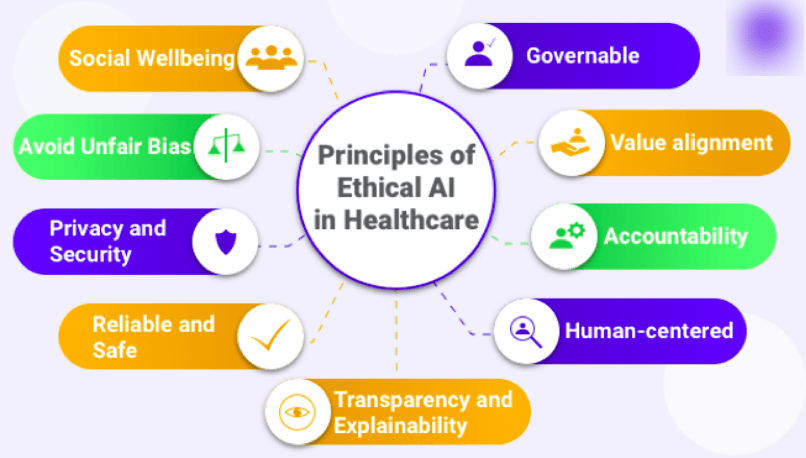AI in Healthcare

The Healthcare sector has witnessed tremendous growth over the past 30 years with innovations in medicines, machines, and care facilities to support the rising demand across the globe. This has led to a huge requirement for doctors, clinicians, researchers, and administrators. Although more people are getting engaged in healthcare, according to a survey by McKinsey, there will still be a huge deficit for healthcare workers by the year 2050. Therefore, AI will play a crucial role in healthcare to ease the burden of workers, provide effective care to patients, reduce hospitalization needs, and improve longevity with customized care delivered to patients by means of its various applications in healthcare.
How AI can be incorporated in Healthcare?
Routine Wellness:
AI tools can become a part of day-to-day life for patients. For example, if a person is suffering from Asthma for that individual the amount of physical exercise will be restricted. So, smart AI wearables can be attached to the patient’s body which can continuously monitor one’s health and send signals for taking appropriate actions to reduce the risk. This data and the analysis of patterns can also be used as feedback to the AI tool to learn and improve its performance in the future.

Another interesting application is of a chatbot. Doctors may not available 24/7 for consultation and for people living in remote areas it can become difficult to have immediate access so chatbots can come to handy for these situations. A chatbot basically comprises of an AI assistant (built using Deep Learning, NLP, Speech algorithms) who can communicate with you anytime, understand your problems and recommend solutions. For example, for people suffering from mental health problems, a chatbot can keep them engaged by striking conversations with the patient throughout the day and understand their current state of mind.

Improving Longevity, Reducing Risks:
It is quite often that severe diseases get detected when a person has already reached to a certain risk stage. One of the reasons for this is that there is no mechanism for early detection of diseases. In this situation, AI can help healthcare benefit a lot. First, AI tools can assist the doctors and patients in monitoring chronic and risk-prone diseases efficiently. It can help with early detection/prediction of future outcomes. For example, for the detection of cancer, AI can result in reduced false positive rates and improved speed of detection which can ultimately enlighten people about future treatments required.
Treatment with Robots:
Robots have been actively used in healthcare facilities for performing tasks ranging from medicine development in laboratories to replacing humans in executing surgeries. Robots can work in tandem with doctors and clinicians to perform laborious manual tasks or to assist patients with their care requirements. They employ a variety of AI technology related to Computer Vision, Deep Learning, Natural Language Processing and Perception.

Visual Diagnosis:
With the advancement of camera technology, there is no dearth of powerful cameras which can capture high-quality images. This advantage can be leveraged for the treatment of skin-based diseases which can be easily diagnosed with a picture. Nowadays, cosmetic brands are using AI-based skin analyzers to analyze, identify diseases and provide relevant products for their cure virtually.
Assistance during Pandemic:
Considering the recent scenario of the Covid-19 pandemic, AI technologies have provided invaluable assistance to healthcare professionals. AI tools are used to identify symptoms of Covid-19 through chest x-rays and ct scans. AI-based algorithms can utilize the past data on disease spread and predict the future spread patterns. They can also be used for contact tracing by identifying Covid-19 infected individuals in a periphery and sending warnings. Moreover, these technologies can effectively be used in hospitals for tracking patients’ history or classifying patients for ward allocation based on the severity of symptoms.
How to make AI in healthcare ethical?
Given the multiple benefits of incorporating AI in healthcare, there are also some concerns for the same regarding privacy, integrity, security, and reliability of patients’ data accumulated by AI technologies. Therefore, a set of principles should be regulated for the ethical use of AI in healthcare. Below, let’s look at some of those principles.

In this blog, we understood the role of AI in healthcare, its scope for the betterment of healthcare facilities in the future, its applications, and the concerning principles which should be regulated for its ethical and uncompromised use. Surely, incorporating Artificial Intelligence in healthcare will open up immense opportunities for innovation and research in this area.
